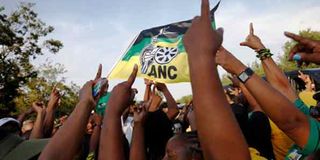Political leadership and ‘permanent’ curses of Africa

What you need to know:
- In turn the “permanent three” have fed or sustained the other three potent forces in most African countries namely politics, ethnicity, and religion; plunging the continent in forever wars, and destructions.
Post-colonial Tanzania has always fought the same enemies on the domestic front: poverty, ignorance and diseases. Over time deadly additions like corruption have taken their position up there with the “permanent three”.
In turn the “permanent three” have fed or sustained the other three potent forces in most African countries namely politics, ethnicity, and religion; plunging the continent in forever wars, and destructions.
Recent discussions in the country have centred on these destabilising forces and made their way into parliament. Depending on the political temperature of the time, supporters of rival political parties have accused their rival of belonging to a political party that belongs to this or that religion. Also it is not new for political opponents within from within the same political party or from rival political parties pointing fingers at their political opponents accusing them of regionalism/ethnicity.
Given the fragile nature of political outfits we fancy calling “republics”, or “states”, such accusations are almost unavoidable. After all, politics deals with distribution and re-distribution of resources which despite their abundance in Africa have always been scarce especially to those who desperately need them.
Most armed conflicts on the continent are resource conflicts; where various ethnic groups or religions vie for the scarce resources through domination of the state.
However, despite all the madness and all the sufferings imposed on the poor by the continent’s elites in the name of politics, ethnicity or religion, it is rare for all three to be tied up at the same time. Within the region, the decades long armed conflicts in Sudan which led to the formation of South Sudan was tied to all three. There is pre-genocide Rwanda as well where all three fuelled the horrors which dominated its post-colonial period. There is Nigeria too where the many coups and counter coups were driven by all three.
In one of these “discussions”, some managed to link all three pointing accusing fingers at a political party and an ethnic group as being powerful enough to influence a powerful religious denomination. That we even find ourselves in such situation is truly saddening. With the help of the internet and social media we have become more ignorant of ourselves and averse to details and facts.
Oblivious to the perils of going down that road in countries like ours, we cling to these manipulations because they serve certain purposes.
In a perverse way, such “discussions” are a testament of the enduring legacy of colonialism, which though brief has managed to dictate how we identify ourselves more than half a century after we gained political independence. That despite all the efforts of Mwalimu and other independence leaders, we have lost our way so early. They worked so hard to turn this country into a positive example for the rest of the continent with regard to socio-political organisation in post-colonial Africa.
They taught us that we are not a product of our colonizers. That we should not be defined by their failures and manipulations. That it is possible to forge something different going forward.
We are terrible students.
It is the same story with natural resources as the recent debates in parliament have shown.
Many parts of the country which are endowed with various natural resources, be they cash crops like cashew nuts or minerals like gold, are among the poorest.They have been left out of the touted economic growth brought by economic liberalisation policies. The so-called “economic war” the government has waged against investors who have failed to pay their fair share of revenues to state coffers is testament of this sad and frustrating reality.
And every time there is a heated discussion about equitable distribution of the benefits of these resources, almost unavoidably one hears accusations of regionalism/ethnicity being peddled around. As if on cue, the conflicting views are supported by arguments like each area should benefit with its own reasons. Not much is said about those areas which have nothing in terms of natural resources.
That despite being part of a continent where nothing has worked by acting on our base motives, it seems the lessons have been ignored or not learnt altogether. Continuing to allow the demons of the past to dictate the present and influence the future sabotages state building project.




